Five reasons MRI scans are more affordable at an imaging center
Outpatient MRI: Empowering Your Healthcare Decisions You have more options than you think When your doctor orders an MRI scan, you hold more…
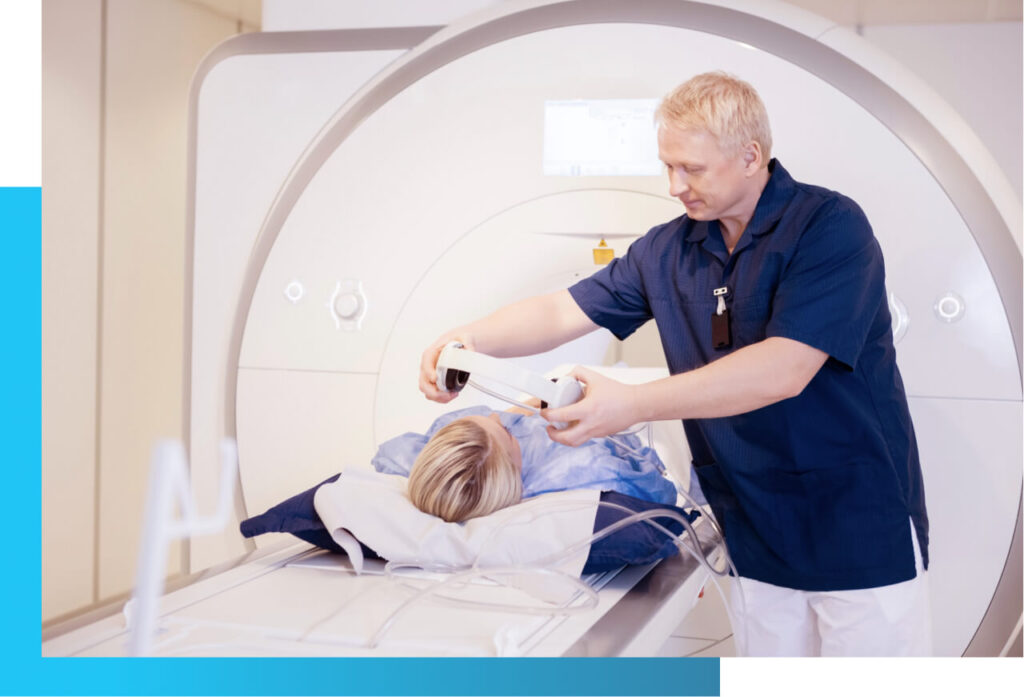
At Gateway Diagnostic Imaging, we provide advanced 3T wide-bore MRI services with fast scan technology across the Dallas-Fort Worth metroplex and Abilene. Our state-of-the-art technology delivers precise, detailed imaging with greater comfort for patients.
When you need fast and reliable results, Gateway Diagnostic Imaging is here to help. With appointments available within 24 hours, extended hours, and weekend availability, we make the medical imaging process seamless and stress-free at our 13 convenient locations.
Discover more about our 3T wide-bore MRI services and what you can expect when you choose Gateway Diagnostic Imaging.
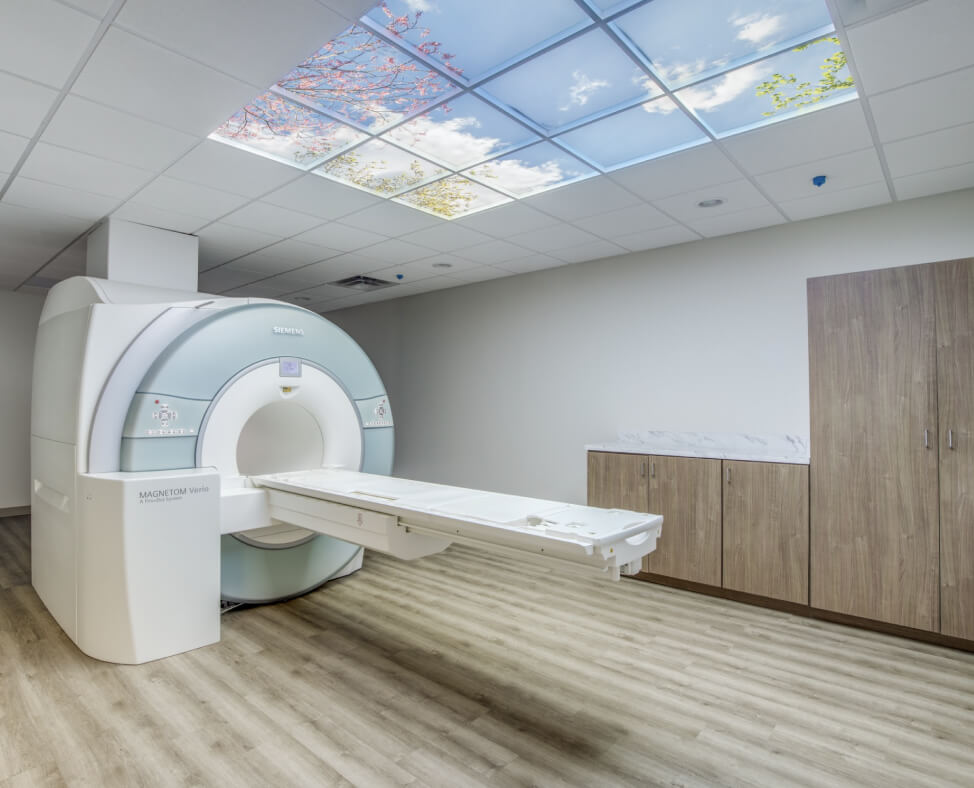
MRI is short for “magnetic resonance imaging.” This scan can provide you with a detailed, 3-dimensional image of the inside of your body using magnets and radio waves. Unlike an X-ray, MRI machines don’t use radiation.
An MRI scan is non-invasive and painless, letting your doctor take a look at your organs, skeletal structures, and tissues with one simple scan. Your doctor might order an MRI exam to check for cancer, joint issues, spinal issues, soft tissue injuries, or issues with your internal organs.
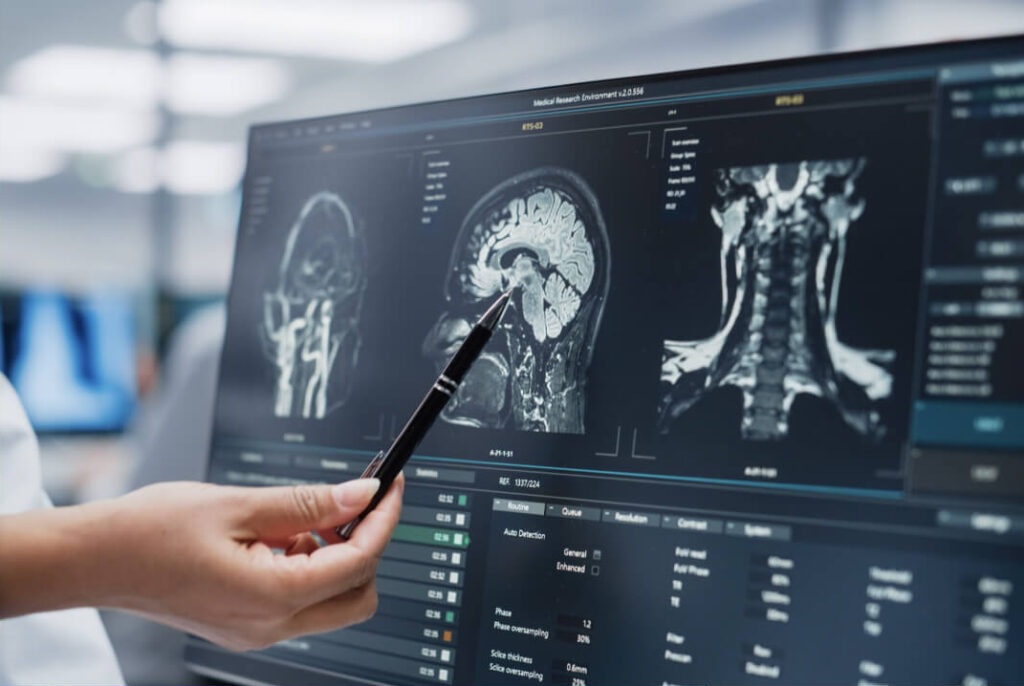
At Gateway Diagnostic Imaging, we offer a comprehensive range of 3T wide-bore MRI services with fast scan technology to meet all your diagnostic imaging needs with unmatched clarity and comfort:
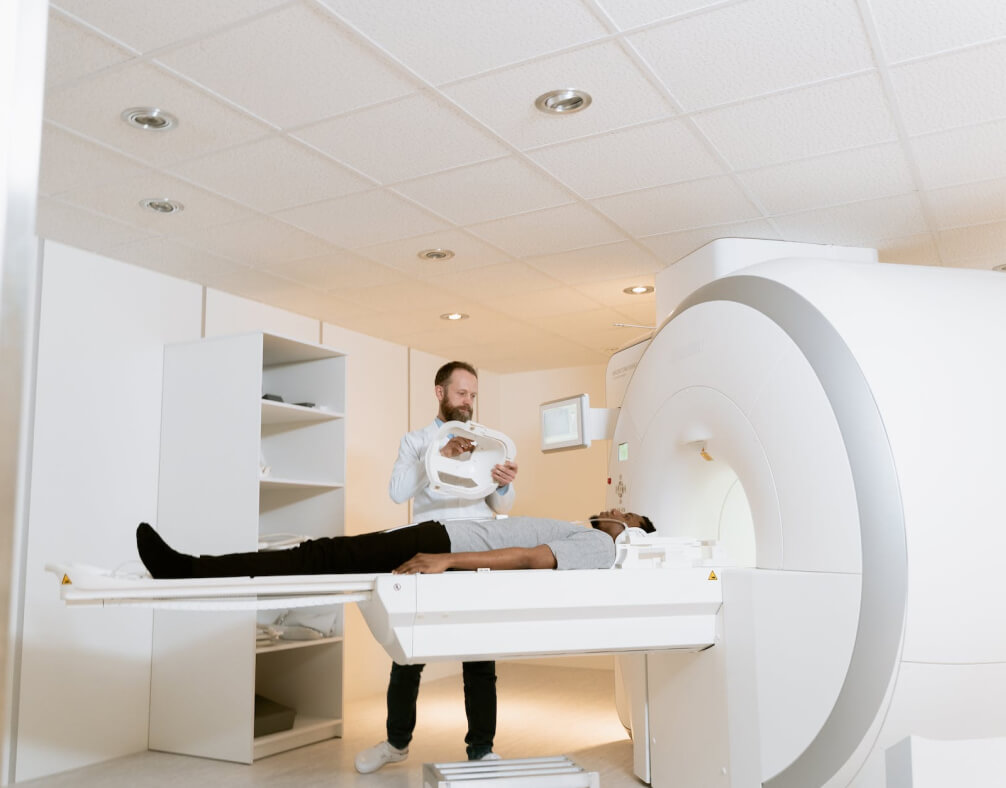
When you arrive for your MRI exam, you’ll be asked to change into a cotton gown. Because the MRI machine uses magnets, you can’t have any metal in or on your body during the exam, so you’ll need to remove any jewelry or other metal.
To begin the exam, you’ll lie down on the machine’s table, which will slide into a large cylinder. The MRI technologist will talk you through the scan using an intercom inside the machine. During the scan, you’ll hear noises such as tapping, knocking, and banging. To help you with those sounds, you’ll receive headphones and can choose the type of music you want to listen to. Depending on the reason for the scan, an MRI scan might take anywhere from 15 minutes to an hour.
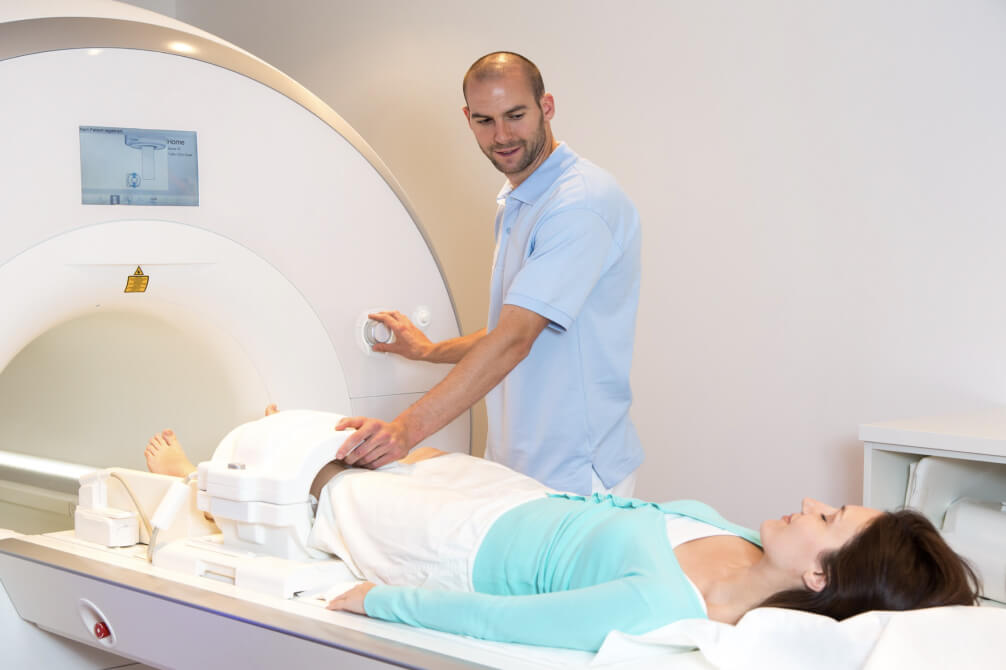
We know MRI exams are often costly. Compared to hospital MRI exams, our patients see up to 400% cost savings. We work with all major insurance companies, accept CareCredit®, and have financial assistance programs available to ensure you can access the exams you need.
MRI results are typically available within a few days, but your provider will inform you about when and how you’ll receive them.
Generally, there are no dietary restrictions, but it’s best to check with your provider about medications and specific preparations.
Bring a form of photo ID and any referral or documentation provided by your healthcare provider.
MRI is non-invasive and uses no radiation, but always inform your technologist about implants, tattoos, or any medical conditions before the scan.
The MRI machine is a large, cylindrical tube with a table in the middle where patients lie down.
The cost of an MRI (Magnetic Resonance Imaging) scan can vary significantly depending on various factors such as:
You will need a referral from a healthcare provider to schedule an MRI. Healthcare providers, such as your primary care doctor or a specialist, typically order imaging tests like MRIs based on your symptoms, medical history, or the need for further evaluation. They assess whether an MRI is necessary for your specific situation. In addition, your healthcare providers referral and clinical notes are typically used by your insurance to verify and approve coverage for the MRI scan.
An MRI uses magnetic and radio waves to create a 3D image. These images are particularly effective in identifying issues in soft tissue, spine, nerves, ligaments, and similar body parts. MRIs are valuable tools for diagnosing aneurysms & strokes, cancers, injuries to tendons, muscles, ligaments, bones & joints. They are also useful for detecting spinal diseases or damage, and issues related to the urethra, uterus, bladder, vagina, or rectum. Read more about the differences between an MRI and a CT scan.
An IV contrast emphasizes very subtle differences that would not be visible without it. The contrast agent, also known as dye, highlights blood vessels, organs, and specific soft tissues. This helps better identify points of inflammation, blood clots, tumors, and more. Your doctor may have ordered IV contrast if you have a history of concussions, seizures, infection, degenerative changes, and many other reasons.
It depends on the nature of the scan. The more detailed a scan needs to be, the longer the scan will take to complete. On average, a scan takes anywhere from 20 to 60 minutes. Read more about what to expect during your MRI
Yes, your physician has access to your scans and reports through the physician portal Synapse.
This depends on the type of implant you have. If you have a drug infusion pump, cochlear implant, metal fragments, IUD, artificial joints, as well as other forms of implant or piercing in your body, be sure to let your doctor and technologist know beforehand. If you have an implant card with medical device identification numbers, please share with your imaging center ahead of time and bring this to your appointment. This will inform the MRI tech if that material is safe for scanning.
The function of MRI coils is to send and receive signals during the scanning process by placing them around the specific areas of the body to be imaged. They enhance clarity, resolution, and speed of imaging by their proximity to the area of interest. Different types of coils are used depending on the body part being scanned.
Many of these coils used are blanket coils; they lay directly on the skin and are comfortable and adaptable to the shape of your body…just like a blanket. You must remain still during the MRI scanning experience, which may be difficult for some people. If you are concerned about not being able to stay still, whether due to pain or any other reason, discuss this with the imaging center beforehand. They might be able to offer solutions such as padding or supports to make you more comfortable.
Comfort is key, dress like how you would on a relaxed day at home. Soft, loose-fitting clothing is your best bet. However, avoid wearing any clothing with metal parts like zippers, snaps, or underwire bra. Most centers will likely provide you with a gown to wear during the study, but coming in comfy attire can make the pre-scan process smoother. Read more about how to prepare for you MRI appointment here
Yes, there are no concerns about having imaging done while breastfeeding. Talk to your imaging center and inform them of your breastfeeding prior to the scan. For IV contrast with Iodine and Gadolinium, you and your baby are safe to continue breastfeeding like normal after the procedure. Your doctor will discuss with you if there are certain circumstances or contrast agents that could potentially pose an issue to breastfeeding. If you choose to abstain from breastfeeding after the contrast is administered, you are encouraged to pump and save your breastmilk prior to your appointment.
You need a referral from your doctor. If you have a referral you can go to our request appointment page. We can offer same day and next day appointments. Read more about how scheduling and appointments work here
Yes, it may be comforting to know that many modern MRI machines are designed to be more spacious and open. We provide headphones that can help distract from being in a small space. Additionally, there’s a call button in the machine you can press to alert the technician. The tech can speak to you and always hear you during the entire process. In addition to our Open MRI machine, all Gateway Diagnostics centers have a 3T wide–bore MRI available which provides a more comfortable entrance at 70cm wide. Gateway offers patients innovative Fast Scan technology which significantly decreases the length of the time you spend in the MRI.
It can get a bit noisy. The sounds of an MRI machine can be described as a series of loud knocking or tapping noises. This is just the machine taking pictures. We can offer you earplugs and headphones with music or a podcast to dampen the sound.
Outpatient MRI: Empowering Your Healthcare Decisions You have more options than you think When your doctor orders an MRI scan, you hold more…
When your healthcare provider recommends an MRI scan of your lower back, you are probably wondering what a lumber spine MRI can actually…
If your healthcare provider recommends a low-dose lung CT screening, it means your medical history might put you at a higher risk for…

